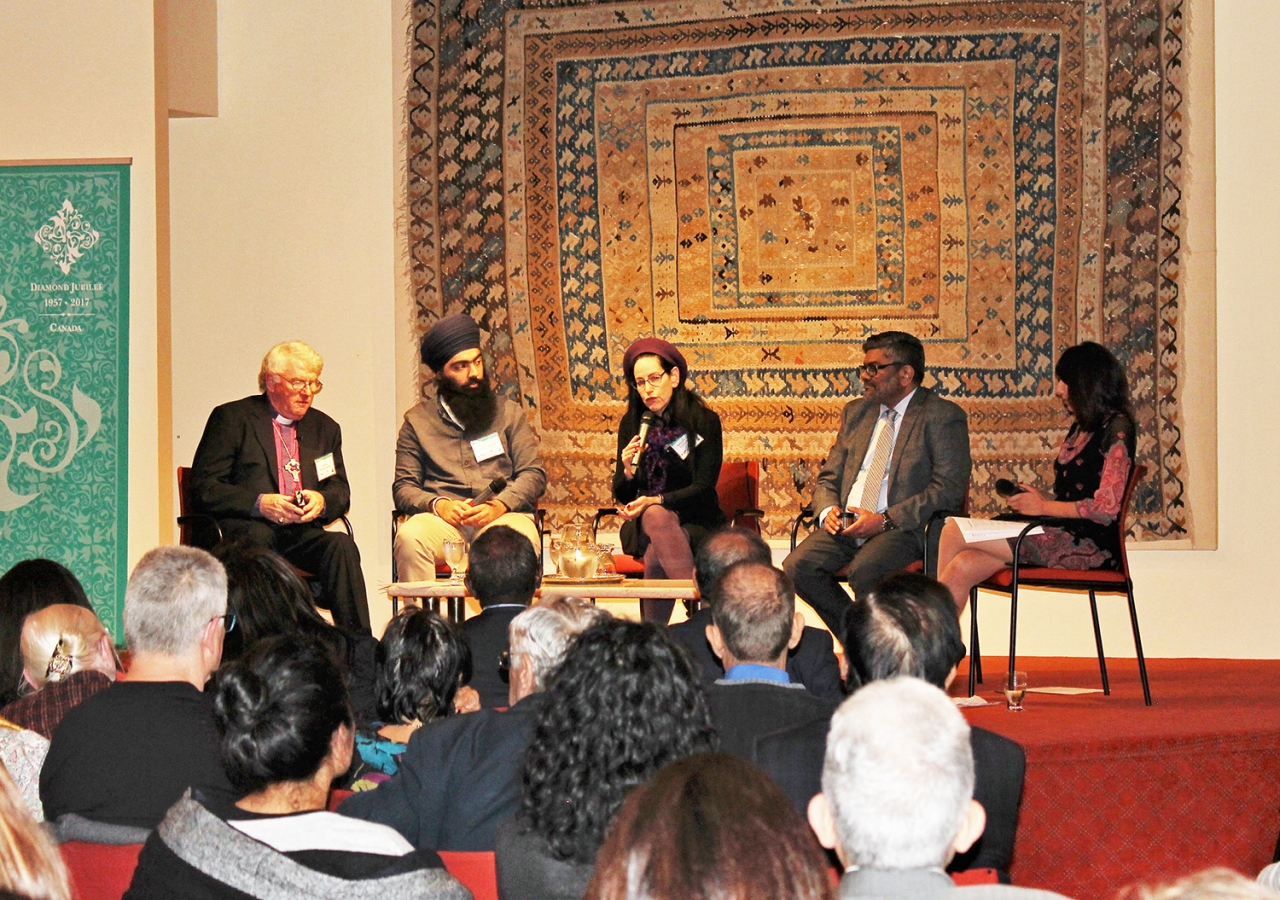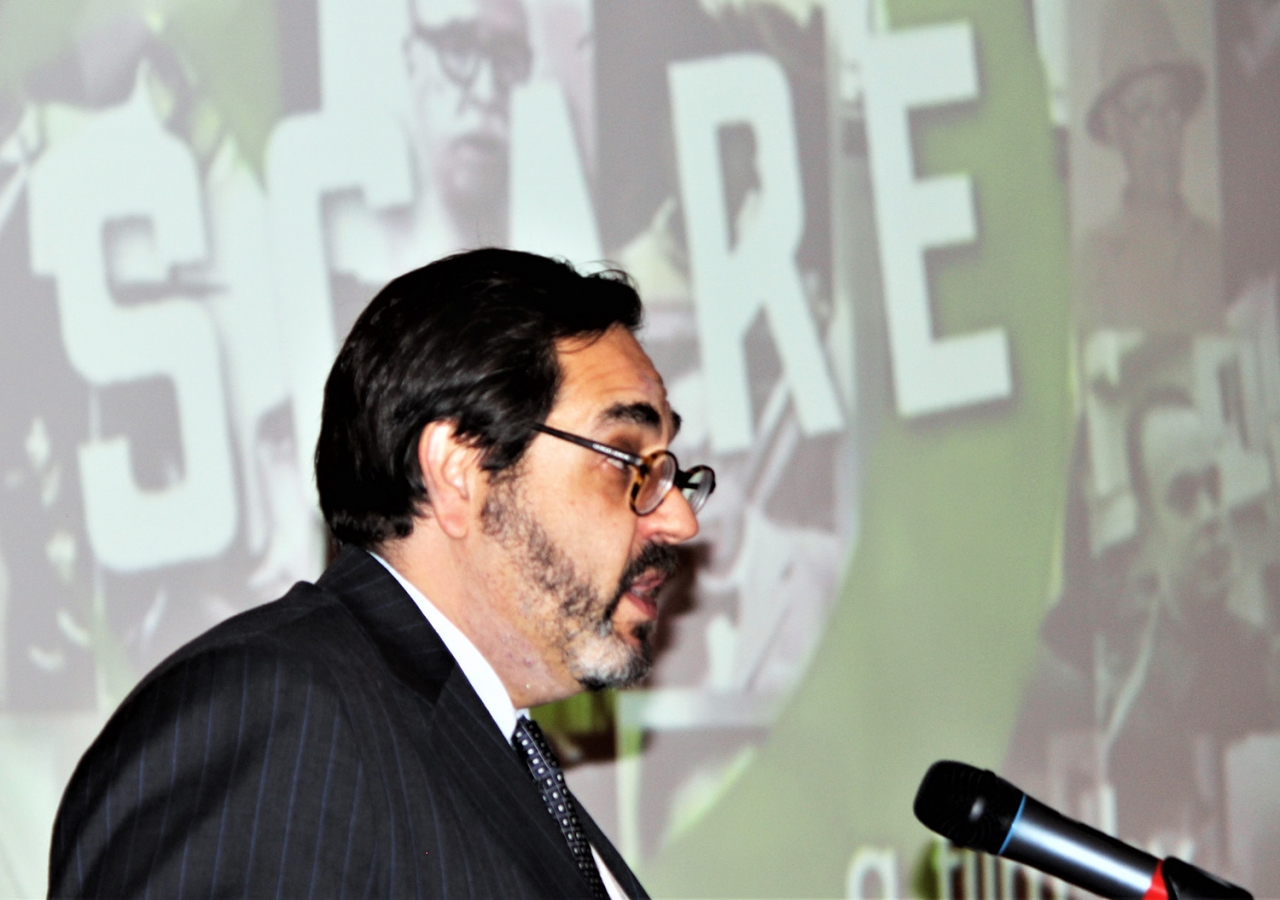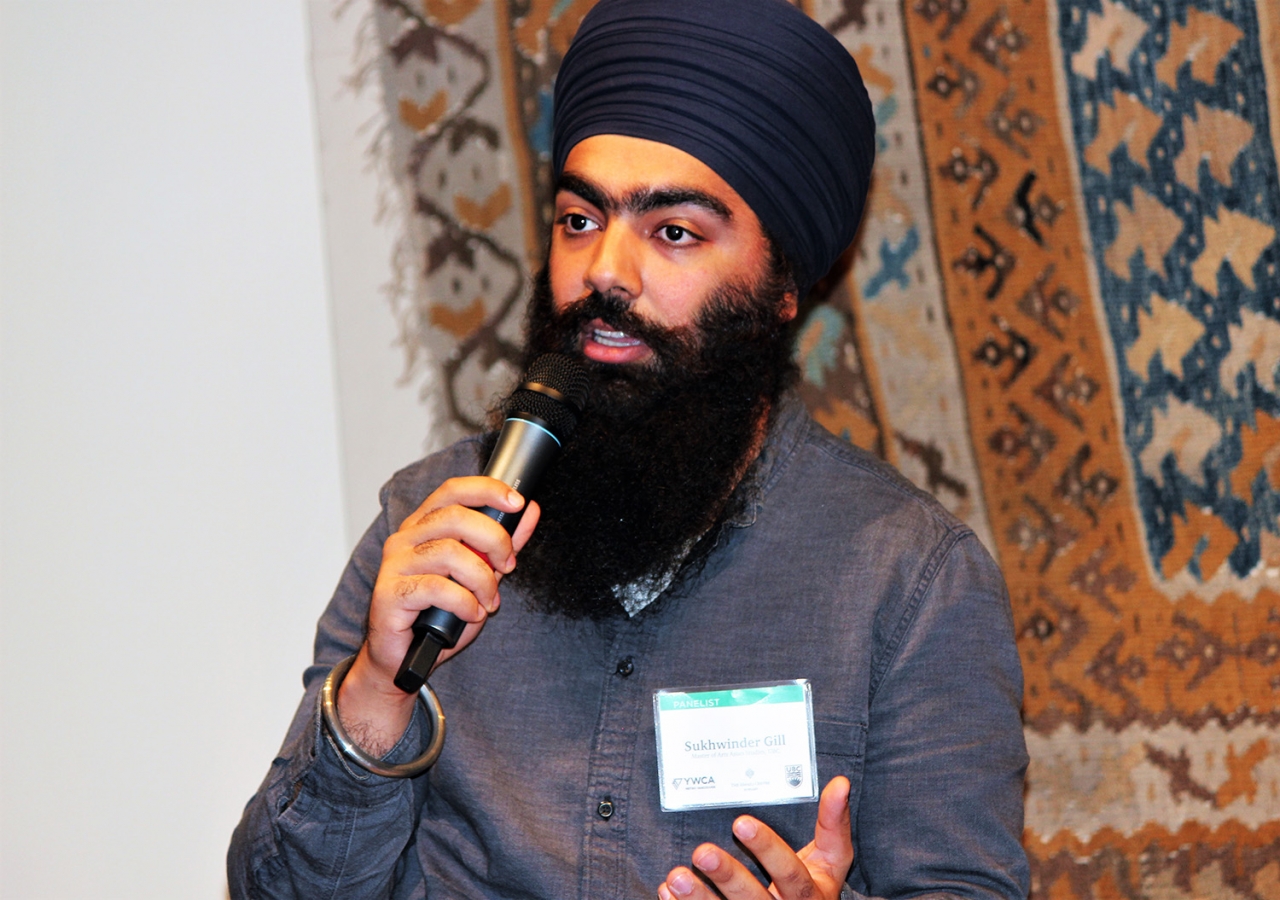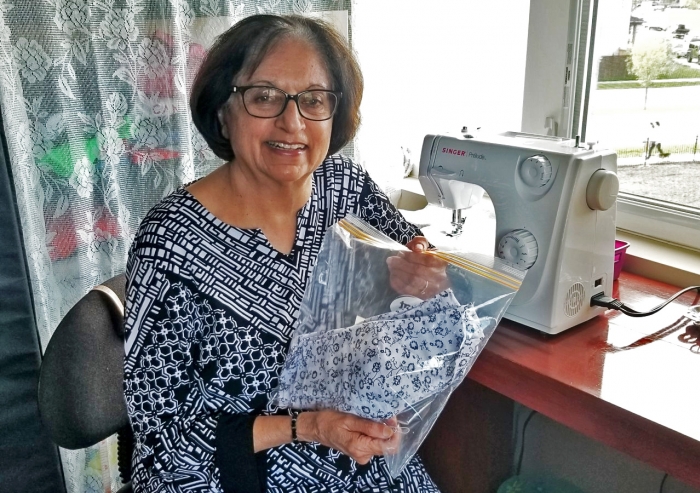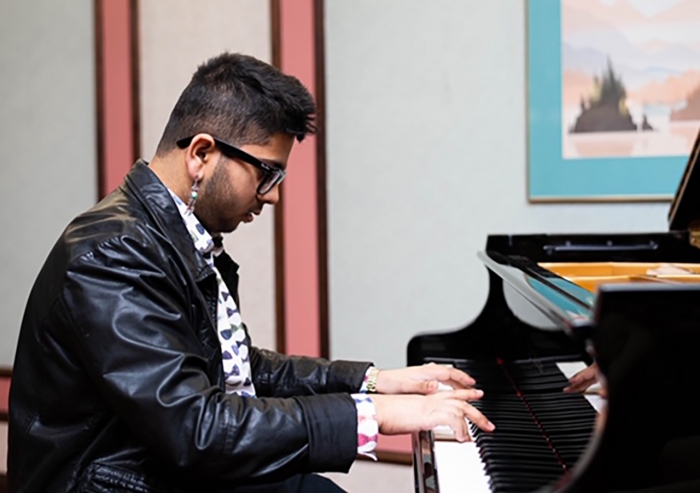The data paints a different picture.
“According to Statistics Canada, hate crimes against Muslims in this country have more than doubled since 2012,” said Sachi Kurl to an audience of over 200 people at the Ismaili Centre Burnaby on October 23.
Kurl, the executive director of the Angus Reid Institute and a reporter who often appears on CBC, was the moderator of a discussion entitled Path to Understanding: A Collective Response to Islamophobia.
The event was organized through a partnership between YWCA Metro Vancouver, the University of British Columbia, and the Aga Khan Council for Canada.
CEO of YWCA Metro Vancouver, Janet Austen, underscored the problems revealed by the Edelman Trust Barometer – a study that measures trust in society’s four key institutions: business, government, NGOs, and media.
“Not only has trust fallen to its lowest levels in the 17 years of this study,” said Austen, “but fully half of Canadian respondents believe the influx of people from other countries is damaging to our economy and to our national culture.”
Peter Klein, the evening’s keynote speaker, drew parallels between the Islamophobia that currently exists and the way Japanese-Americans were treated after Pearl Harbour, along with the experience of Jewish immigrants in America in the mid 1900s.
Klein is the former director of UBC’s Graduate School of Journalism, the founder of the Global Reporting Centre, and a multi Emmy-award-winning journalist. He showed the audience a clip from a documentary he has been working on since 9-11 entitled Scared. In it, Klein highlights the story of his own father, a holocaust surviving Jewish man who moved to the U.S. in the middle of the 20th century.
Wrongfully accused of being a member of the KGB when he arrived, Klein’s father was kept under surveillance by the FBI and subjected to limited rights for most of the rest of his life. His story resonated with the treatment of many Muslim Americans after 9-11, Klein explained.
“What we saw during the Bush administration was the FBI setting up bomb sniffers outside mosques, secretly eavesdropping on Imams, eavesdropping on congregants - many cases of false cases that emerged from simple, innocent conversations,” said Klein.
He then spoke of how he had expected the film to go in an entirely different direction.
“When I started this project, I thought there was a nice theme here – that we’ve grown as a society and we’ve learned some lessons,” he said.
“Now I look at the current climate, and I see it’s kind of undermined the entire premise of my film.”
A discussion amongst scholars
Following the keynote address, Kurl moderated a panel discussion between four respected voices of different faiths: Bishop Michael Ingham, Dr. Rabbi Laura Kaplan, Zool Suleman, and Sukhwinder Gill.
Bishop Ingham explained that to combat Islamophobia, we have to understand the source of the problem.
“We are dealing with a phobia. It’s irrational,” said the retired Bishop of the Diocese of New Westminster of the Anglican Church of Canada. “Until we understand that, I don’t think we can begin to address the realities. You can’t reason people out of a position they never reasoned themselves into in the first place.”
Later, responding to an audience member’s comment that the Qur’an outlines a history of violence, Ingham pointed out this wasn’t unique to Islam.
“Every world religion has a history of violence and it’s only honest to acknowledge that,” he said, clarifying how both the Christian Bible and the Jewish Tanakh contain bloodshed as well.
“We haven’t censored that out because it’s unpleasant. It’s part of human reality, it’s part of our experience as human beings and we leave it in our sacred scriptures in order to learn from it.”
Suleman, winner of the City of Vancouver’s Diversity award in 2017 and a Shia Ismaili Muslim, discussed his own thoughts on working towards the elimination of Islamophobia.
“As important as it is to have an interfaith panel, and I don’t want to discount the importance of this, I would suggest that the serious hard work is really within Muslim communities and between Muslim communities,” said Suleman, who works as a Canadian immigration and refugee rights lawyer.
Rabbi Kaplan agreed: “I think about how much hard work the Jewish communities in each city did and are still doing to speak in a unified voice,” said the Director of inter-religious studies at the Vancouver School of Theology.
“There are disadvantages to speaking in a unified voice, and there are times when you really do need to work together.”
Perhaps the most effective point was made by Gill, a representative of the Sikh community. Gill is a UBC student working towards a Masters of Arts in Asian studies, with a focus on Sikh tradition and literature.
“We’ve got to talk with other people,” he said. “Then we realize we’re not that different from each other.”
The evening’s discussion created an open dialogue where questions were considered and solutions debated.
Master of Ceremonies and moderator Sachi Kurl spoke with the.ismaili at the end of the evening and reflected on the conversations.
“The fact this room was packed shows that there’s a real hunger to hear about this, to exchange ideas about it, and hopefully to come away with some points of view that people have not explored before,” she said.
Questions, comments, article suggestions? Contact the My Community Editor: [email protected]

